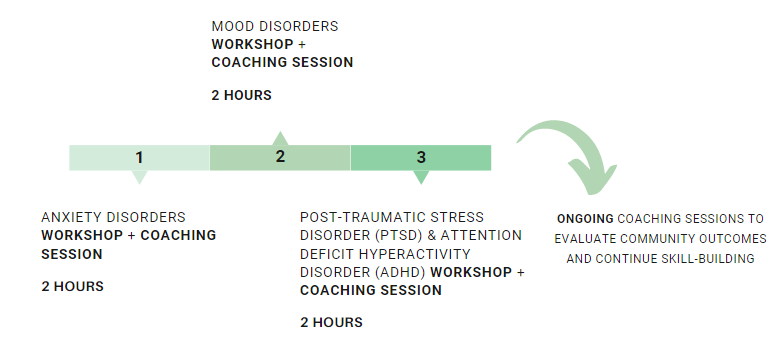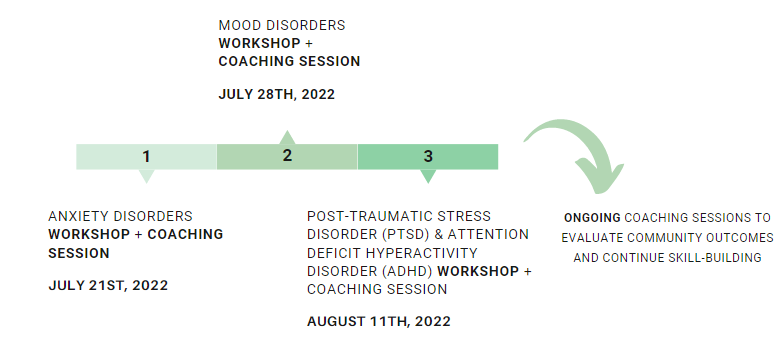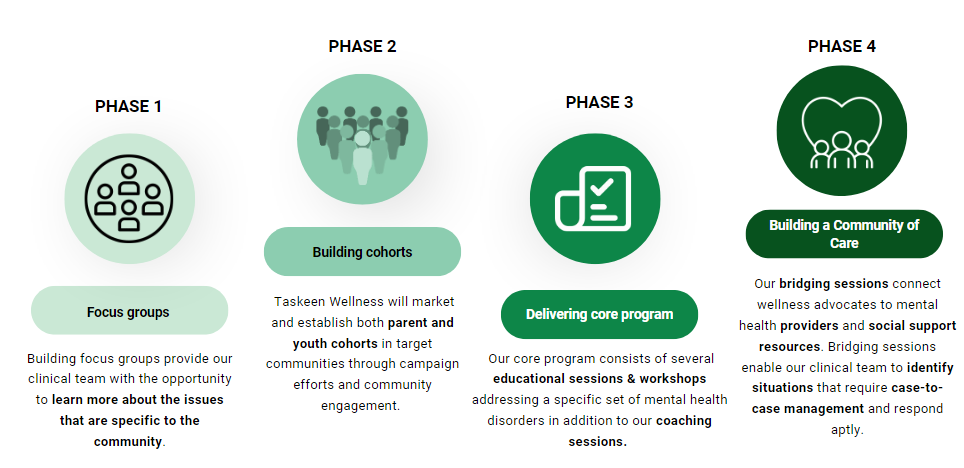Thorncliffe Park And Flemingdon Park Debrief of Cohort #2: Youth
WHO:
Our first youth cohort consisted of undergraduate students, high school students, education faculty, and community volunteers.
83.3% of participants in our first youth cohort were women and 16.7% of our participants were men.
- 5/6 PARTICIPANTS → WOMEN
- 1/6 PARTICIPANTS → MEN
WHAT:
Wellness advocates participated in several structured educational sessions led by our team of mental health professionals.

DATES:
Our initial sessions took place on a weekly basis. The program intends to maintain a rolling intake of participants while offering ongoing coaching sessions as a form of long-term support and to evaluate community outcomes and progress.

WHERE:
In our virtual workshops, wellness advocates had the opportunity to reflect on their current mental health and develop strategies for maintaining their health and well-being.
Wellness advocates learned to:
- Acknowledge the significance of mental health as part of their personal life.
- Recognize and dispel the stigmas that typically surround mental health disorders.
- Recognize indicators of a possible mental health disorder in youth.
- Develop an understanding of the strategies and treatment options available for mental health disorders.
- Have a greater understanding of mental health disorders and how they can occur.
- Develop greater comfort in seeking help for themselves and others.
WHY:
According to Statistics Canada, visible-minority groups fared significantly worse than other communities on most measures of mental health, particularly during the COVID-19 pandemic.
Mental illness and/or substance use disorders are more likely to develop in young people aged 15 to 24 than in any other age group. Despite these statistics, only one out of every five Canadians who require mental health care receives it. Hence, mental health supports for youth are particularly critical in marginalized communities like Thorncliffe Park and Flemingdon Park.
Taskeen Wellness’s program model addresses long-standing barriers to mental health support by actively addressing gaps in communication, promoting connectedness, and building resiliency within communities.

INSIGHTS AND EXPERIENCE:
- In our coaching sessions, youth expressed the need for tools on how to express issues with mental health within different relationship dynamics (parent, spouse, friend, etc.).
- Youth focused on how to support individuals who do not initially want to receive treatment for mental health disorders.
- In our coaching sessions, Taskeen Wellness identified the need to include information on eating disorders among youth.
